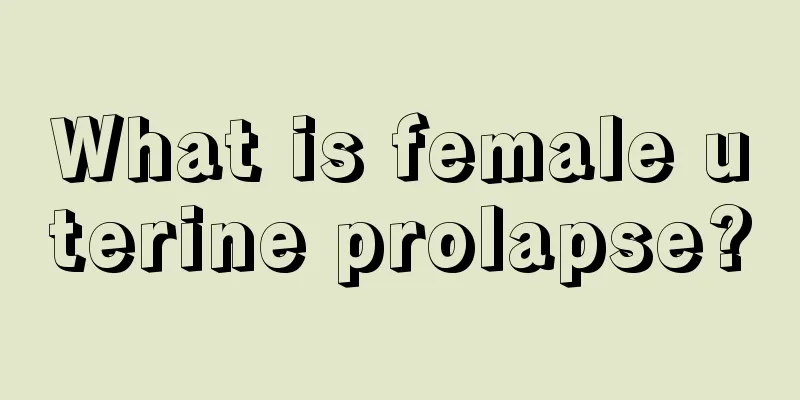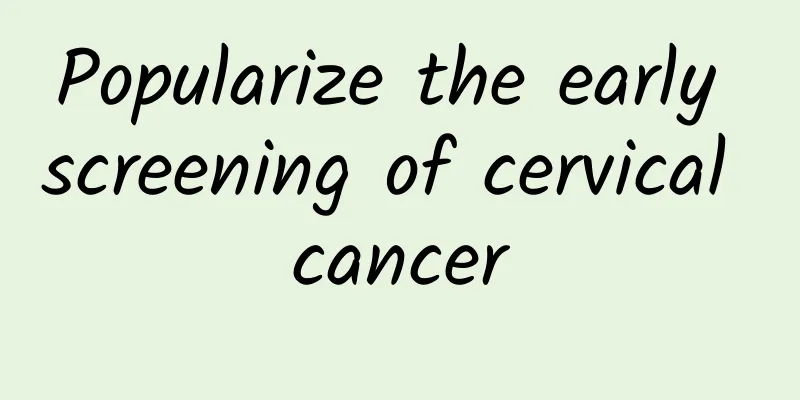Treatment for vaginal itching and pain

|
Normally, we often inadvertently discover that some women will secretly scratch their private parts when people are not paying attention. Although this behavior does not seem very civilized, they also have their own difficulties. If there is nothing abnormal with your private parts, who would scratch them in public? Generally speaking, this situation occurs because of itching and pain in the vagina. Medically speaking, this is vulvar itching. What to do about vulvar itching? Although vulvar itching is not a disease, if it is not cured for a long time, it will cause patients extreme pain and even affect their health. So, first of all, we must prevent it from happening. When symptoms of vulvar itching occur, do not scratch it with your hands or rub it with clothes, and do not wash it with hot water, soap or other detergents in an attempt to reduce adverse irritation. It is best to go to the hospital for a check-up, find out the cause and then receive symptomatic treatment. The main treatments for vulvar itching include: 1. General treatment: Pay attention to menstrual hygiene and keep the vulva clean and dry. Avoid scratching, washing with hot water, and using soap. When there is an infection, use potassium permanganate solution for a sitz bath. The underwear should be breathable and loose, and avoid alcohol and spicy or allergic foods. 2. Etiological treatment: Trichomonas vaginitis can be treated by external washing with lead acetate solution or 3% boric acid solution, and then oral or vaginal medication. Take metronidazole orally, 0.2g each time, 3 times a day, for 7 consecutive days. Couples can take it together. Apply the medicine vaginally, once a night, 0.2-0.4g each time, for 7 consecutive days. Repeat the above treatment 3 days after the next menstruation is over. If the test is negative for three consecutive times, the patient is considered cured. During the treatment period, sexual intercourse is prohibited and medication is not allowed during menstruation. For candidal vaginitis, wash the vulva with 4% soda water or 1/2000 Sanisol solution, and then apply medicine. Both 4% clotrimazole ointment and nystatin ointment are effective. Apply the medicine for 7 consecutive nights, and repeat once 3 days after the next menstruation is over, for a total of 3 times. Patients are considered cured if three consecutive vaginal discharge tests are negative. 3. Symptomatic treatment: For external use, in case of acute inflammation, you can use 1% levofloxacin plus 1% rivanol solution, or use Chlorhexidine or complex iodine to wash the vulva, and then apply 40% zinc oxide ointment. Chronic itching can be treated with dexamethasone emulsion. Oral medication can appropriately supplement vitamins B, C, A, and E. Chlorpheniramine 4 mg, 3 times a day. Menopausal patients should take 0.25-0.5 mg of ethylenediamine powder orally once a day for 10 consecutive days. To sum up, in order to completely get rid of the trouble of vaginal itching and pain, women need to develop good living habits in their daily lives and frequently wash their vulva with warm water instead of using some so-called lotions. You should also pay attention to the cleanliness of your underwear. It is best to change your underwear every day. Don't be lazy and wash the underwear you take off in time. |
<<: What causes vaginal redness and itching?
>>: What causes itching on both sides of a woman's vagina?
Recommend
What anti-inflammatory medicine is good for sore throat during menstruation?
In fact, it is best for women not to take medicin...
What to do if your back feels cold during the confinement period
A cold back is a common problem during the confin...
How many courses of treatment are needed for cervicitis?
Women who have had sexual life, especially those ...
What kind of inflammation is it that causes the perineum to swell and hurt sometimes
If a woman experiences swelling and pain in the p...
When do nectarines ripen? Can nectarines be stored in the refrigerator?
Nectarines are mainly a variant of hairy peaches,...
Possible causes of pain in the lower left abdomen of women
From a gynecological perspective, if you have dul...
These New Year's essentials for every household are really not recommended to be eaten too much! Huaxi doctors recommend......
There are still two days until New Year’s Eve! Re...
How long does it take for ovulation to occur after medical abortion?
For young women, it is very important to protect ...
What should I pay attention to after a painless abortion?
"Painless abortion, effective in three minut...
Clinical manifestations of uterine fibroids and adenomyoma
I believe everyone is familiar with diseases such...
Is brown bleeding during pregnancy dangerous to the fetus?
Pregnancy is both a happy and painful thing for w...
Can I get pregnant right after my period?
It is common knowledge that you cannot have sex d...
What causes lumbar pain in women?
In life, people always think that men’s waists ar...
How many days can I put on eye makeup after wearing eyeliner?
The eyelid wire surgery is not only quick but als...
How to reduce abdominal wall fat in pregnant women
Some expectant mothers will find a very embarrass...









